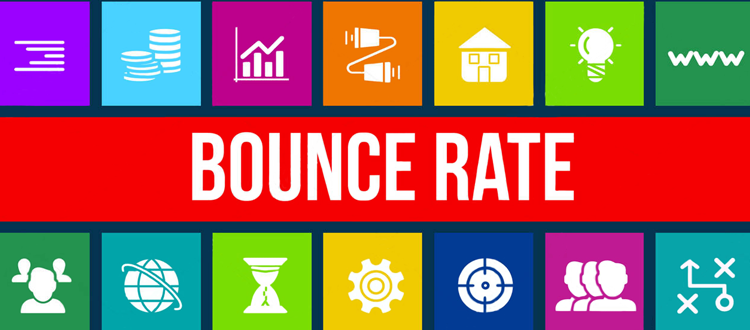Do Bounce Rates Affect SEO?
The topic of bounce rates and how it impacts the ranking of websites on Google is a subject matter which has gone through various discussions. There has been a recent conversation that took place between Andrey Lipattsev, Googles Search Quality Strategist and Rand Fishkin, Moz CEO. Their discussion came out with some interesting new insights.
Rand has mentioned that he has been conducting experimental tests involving a range of 500 to a few thousand people. During the experiment Rand asked these people to take their mobile phones, laptops and tablets and go through the process of performing a search. Once the results appeared, he asked them to each click on the listings, as they appeared at the bottom part of the results page. They were then asked to move away from that site. The results of this exercise were monitored for a few days. Rand discovered that there were quite a few inconsistencies. In around 50% of the experiments, the ranking went through changes as far as the SERP or search engine page results were concerned. In the remaining 50% the ranking did not change.
There are a few questions that these results bring up. Do bounce rates impact the ranking on search engines and if so, to what extent? Lipattsev believes that as far as individual search queries in the experiment are concerned, the interest generated on those particular searches, impacts the rankings. So it’s not about bounced and clicks alone. He said that if a subject or product is gaining a substantial amount of searches and social media mentions, Google is going to pay more attention to that rather than a site getting more clicks and bounces. Lipattsev also states that while it is possible to point the reasons for ranking jumps for individual listing, doing it on an internet-wide scale would be tough.
So what is a bounce rate?
Bounce rate is the percentage of visitors who visit a specific site and then move away from it after only viewing one particular webpage, because of this the term bounce rate is negatively looked upon. It is believed that if a visitor leaves your site after looking up only one page then it’s not relevant to what they are looking for. Their logic isn’t exactly flawed, either. A high bounce rate could mean that your site doesn’t have the relevant, high-quality content Google expects for its top ranked sites. There are a few reasons your site could be experiencing a high bounce rate such as, poor design, having the wrong keywords, poor content and improper links.
What does that mean?
A high bounce rate isn’t always bad though, having a high bounce rate on a page like a Contact Us page could be seen as a good thing. That’s a call-to-action page, where the overall goal is to present the user with the contact information of your business. So a high bounce rate on this page could indicate that the users have gotten what they came for, your contact information, and then left. But if the website has quality content and offers services or products, then your objective should be to ensure a better CTR or click through rate.
But what about Google?
Is Google aware of bounce rates and do they factor it while ranking sites? A lot of organizations don’t use Google Analytics, so there’s no way for Google to track their bounce rate information. Even with Google Analytics it’s difficult to figure out what the bounce rates actually mean as every situation is different. There are so many factors that go into determining the time spent by a user on a specific page. If the user stays on there for 20 minutes or more it could be because the content was exactly what they were looking for. However, it could also be that the user has left the site open whilst they do something else. It’s too difficult to tell.
How To Reduce Bounce Rates
If you are keen on reducing bounce rates, you should be sure that all your pages’ load quickly. The navigation should be user friendly, you should avoid cluttered advertisements and content must be of good quality. If bounce rates are not impacting Google ranking as much as you thought, you must now be thinking how significant other factors are. Recently Google has revealed that there are three factors which could impact rankings and they are Links, Content and Rank Brain. Links must be strong and link votes have a big role to play in rankings. Content should be of good quality; this is more important than ever. Lastly, Rank Brain is Googles AI ranking system and is still a relatively new concept. It’s a new algorithm from Google which helps determine search engine results. It filters complex searches and also converts them into shorter versions, keeping the complexity of search, therefore refining the results.
Research is still ongoing and Andrey believes that making bounce rate click data a strong and measurable metric is possible, but Google still has a long way to go.

